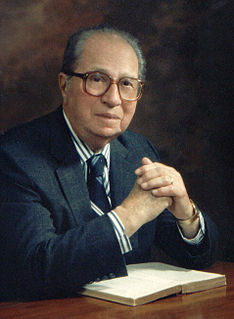 W
WMortimer Jerome Adler was an American philosopher, educator, encyclopedist, and popular author. As a philosopher he worked within the Aristotelian and Thomistic traditions. He lived for long stretches in New York City, Chicago, San Francisco, and San Mateo, California. He taught at Columbia University and the University of Chicago, served as chairman of the Encyclopædia Britannica Board of Editors, and founded his own Institute for Philosophical Research.
 W
WAristotle was a Greek philosopher and polymath during the Classical period in Ancient Greece. Taught by Plato, he was the founder of the Lyceum, the Peripatetic school of philosophy, and the Aristotelian tradition. His writings cover many subjects including physics, biology, zoology, metaphysics, logic, ethics, aesthetics, poetry, theatre, music, rhetoric, psychology, linguistics, economics, politics, meteorology, geology and government. Aristotle provided a complex synthesis of the various philosophies existing prior to him. It was above all from his teachings that the West inherited its intellectual lexicon, as well as problems and methods of inquiry. As a result, his philosophy has exerted a unique influence on almost every form of knowledge in the West and it continues to be a subject of contemporary philosophical discussion.
 W
WRobert Arp is an American philosopher known for his work in ethics, modern philosophy, ontology, philosophy of biology, cognitive science, evolutionary psychology, religious studies, and philosophy and popular culture. He currently works as an adjunct professor teaching philosophy courses in the classroom and online at numerous schools in the Kansas City, Missouri area and other areas of the United States.
 W
WGautama Buddha, popularly known as Lord Buddha or the Buddha, was an ascetic, a religious leader and teacher who lived in ancient India. He is regarded as the founder of the world religion of Buddhism, and revered by Buddhists as an enlightened being, who rediscovered an ancient path to freedom from ignorance, craving and the cycle of rebirth and suffering. He taught for around 45 years and built a large following, both monastic and lay. His teaching is based on his insight into the arising of suffering or dissatisfaction and its ending—the state called Nirvana.
 W
WGilles Deleuze was a French philosopher who, from the early 1950s until his death in 1995, wrote on philosophy, literature, film, and fine art. His most popular works were the two volumes of Capitalism and Schizophrenia: Anti-Oedipus (1972) and A Thousand Plateaus (1980), both co-written with psychoanalyst Félix Guattari. His metaphysical treatise Difference and Repetition (1968) is considered by many scholars to be his magnum opus. An important part of Deleuze's oeuvre is devoted to the reading of other philosophers: the Stoics, Leibniz, Hume, Kant, Nietzsche, and Bergson, with particular influence derived from Spinoza. A. W. Moore, citing Bernard Williams's criteria for a great thinker, ranks Deleuze among the "greatest philosophers". Although he once characterized himself as a "pure metaphysician", his work has influenced a variety of disciplines across the humanities, including philosophy, art, and literary theory, as well as movements such as post-structuralism and postmodernism.
 W
WWilliam James Desmond is an Irish philosopher who has written on ontology, metaphysics, ethics, and religion.
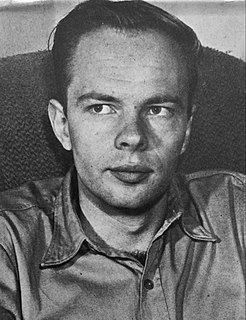 W
WPhilip Kindred Dick was an American science fiction writer. He wrote 44 novels and about 121 short stories, most of which appeared in science fiction magazines during his lifetime. His fiction explored varied philosophical and social questions such as the nature of reality, perception, human nature, and identity, and commonly featured characters struggling against elements such as alternate realities, illusory environments, monopolistic corporations, drug abuse, authoritarian governments, and altered states of consciousness.
 W
WDenis Diderot was a French philosopher, art critic, and writer, best known for serving as co-founder, chief editor, and contributor to the Encyclopédie along with Jean le Rond d'Alembert. He was a prominent figure during the Age of Enlightenment.
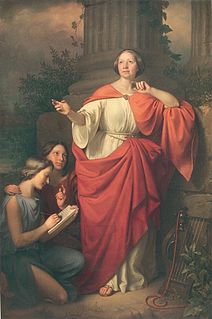 W
WDiotima of Mantinea is the name or pseudonym of an ancient Greek woman or fictional figure in Plato's Symposium, indicated as having lived circa 440 B.C. Her ideas and doctrine of Eros as reported by Socrates in the dialogue are the origin of the concept of Platonic love.
 W
WWilliam James Durant was an American writer, historian, and philosopher. He became best known for his work The Story of Civilization, 11 volumes written in collaboration with his wife, Ariel Durant, and published between 1935 and 1975. He was earlier noted for The Story of Philosophy (1926), described as "a groundbreaking work that helped to popularize philosophy".
 W
WEmpedocles was a Greek pre-Socratic philosopher and a native citizen of Akragas, a Greek city in Sicily. Empedocles' philosophy is best known for originating the cosmogonic theory of the four classical elements. He also proposed forces he called Love and Strife which would mix and separate the elements, respectively.
 W
WEpictetus was a Greek Stoic philosopher. He was born into slavery at Hierapolis, Phrygia and lived in Rome until his banishment, when he went to Nicopolis in northwestern Greece for the rest of his life. His teachings were written down and published by his pupil Arrian in his Discourses and Enchiridion.
 W
WMarsilio Ficino was an Italian scholar and Catholic priest who was one of the most influential humanist philosophers of the early Italian Renaissance. He was an astrologer, a reviver of Neoplatonism in touch with the major academics of his day, and the first translator of Plato's complete extant works into Latin. His Florentine Academy, an attempt to revive Plato's Academy, influenced the direction and tenor of the Italian Renaissance and the development of European philosophy.
 W
WPhilippa Ruth Foot was an English philosopher and one of the founders of contemporary virtue ethics, who was inspired by the ethics of Aristotle. She is credited with inventing the so-called trolley problem. She was elected a member of the American Philosophical Society. She was a granddaughter of the U.S. President Grover Cleveland.
 W
WFrançois Marie Charles Fourier was a French philosopher, an influential early socialist thinker and one of the founders of utopian socialism. Some of Fourier's social and moral views, held to be radical in his lifetime, have become mainstream thinking in modern society. For instance, Fourier is credited with having originated the word feminism in 1837.
 W
WHarry Gordon Frankfurt is an American philosopher. He is professor emeritus of philosophy at Princeton University, where he taught from 1990 until 2002. Frankfurt has also taught at Yale University, Rockefeller University, and Ohio State University.
 W
WErich Seligmann Fromm was a German social psychologist, psychoanalyst, sociologist, humanistic philosopher, and democratic socialist. He was a German Jew who fled the Nazi regime and settled in the US. He was one of the founders of The William Alanson White Institute of Psychiatry, Psychoanalysis and Psychology in New York City and was associated with the Frankfurt School of critical theory.
 W
WRichard Buckminster Fuller was an American architect, systems theorist, author, designer, inventor, and futurist. He styled his name as R. Buckminster Fuller in his writings, publishing more than 30 books and coining or popularizing such terms as "Spaceship Earth", "Dymaxion", "ephemeralization", "synergetics", and "tensegrity".
 W
WAnthony Clifford Grayling is a British philosopher and author. He was born in Northern Rhodesia and spent most of his childhood there and in Nyasaland. In 2011 he founded and became the first Master of New College of the Humanities, an independent undergraduate college in London. Until June 2011, he was Professor of Philosophy at Birkbeck, University of London, where he taught from 1991. He is also a supernumerary fellow of St Anne's College, Oxford where he formerly taught.
 W
WGraham Harman is an American philosopher. He is Distinguished Professor of Philosophy at the Southern California Institute of Architecture in Los Angeles. His work on the metaphysics of objects led to the development of object-oriented ontology. He is a central figure in the speculative realism trend in contemporary philosophy.
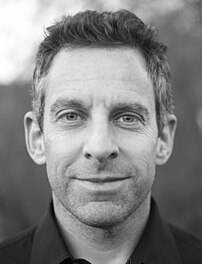 W
WSamuel Benjamin Harris is an American philosopher, neuroscientist, author, and podcast host. His work touches on a wide range of topics, including rationality, religion, ethics, free will, neuroscience, meditation, psychedelics, philosophy of mind, politics, terrorism, and artificial intelligence. Harris came to prominence for his criticism of religion, and Islam in particular, and is known as one of the "Four Horsemen" of New Atheism, along with Richard Dawkins, Christopher Hitchens, and Daniel Dennett.
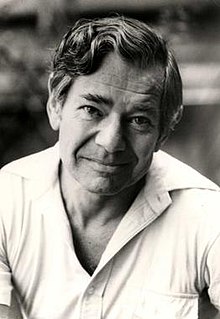 W
WWalter Arnold Kaufmann was a German-American philosopher, translator, and poet. A prolific author, he wrote extensively on a broad range of subjects, such as authenticity and death, moral philosophy and existentialism, theism and atheism, Christianity and Judaism, as well as philosophy and literature. He served more than 30 years as a professor at Princeton University.
 W
WSøren Aabye Kierkegaard was a Danish theologian, philosopher, poet, social critic, and religious author who is widely considered to be the first existentialist philosopher. He wrote critical texts on organized religion, Christendom, morality, ethics, psychology, and the philosophy of religion, displaying a fondness for metaphor, irony, and parables. Much of his philosophical work deals with the issues of how one lives as a "single individual", giving priority to concrete human reality over abstract thinking and highlighting the importance of personal choice and commitment. He was against literary critics who defined idealist intellectuals and philosophers of his time, and thought that Swedenborg, Hegel, Fichte, Schelling, Schlegel, and Hans Christian Andersen were all "understood" far too quickly by "scholars".
 W
WFriedrich Konrad Eduard Wilhelm Ludwig Klages was a German philosopher, psychologist, graphologist, poet, writer, and lecturer, who was a two-time nominee for the Nobel Prize in Literature. In the Germanic world, he is considered one of the most important thinkers of the 20th century. He began his career as a research chemist according to his family's wishes, though soon returned to his passions for poetry, philosophy and classical studies. He held a post at the University of Munich, where in 1905 he founded the Psychodiagnostisches Seminar; the latter was forced to close in 1914 with the outbreak of World War I. In 1915, Klages moved to neutral Switzerland, where over the following decades much of his mature philosophical works were written. Klages died in 1956.
 W
WMario Kopić is a philosopher, author and translator. His main areas of interest include: the history of ideas, the philosophy of art, the philosophy of culture, phenomenology and the philosophy of religion.
 W
WKarl Christian Friedrich Krause was a German philosopher whose doctrines became known as Krausism. Krausism, when considered in its totality as a complete, stand-alone philosophical system, had only a small following in Germany, France, and Belgium, in contradistinction to certain other philosophical systems that had a much larger following in Europe at that time. However, Krausism became very popular and influential in Restoration Spain not as a complete, comprehensive philosophical system per se, but as a broad cultural movement. In Spain, Krausism was known as "Krausismo", and Krausists were known as "Krausistas". Outside of Spain, the Spanish Krausist cultural movement was referred to as Spanish Krausism.
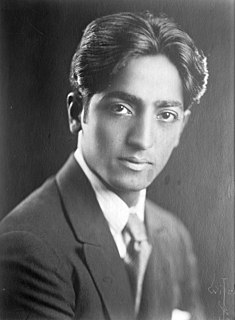 W
WJiddu Krishnamurti was a philosopher, speaker and writer. In his early life, he was groomed to be the new World Teacher, but later rejected this mantle and withdrew from the Theosophy organization behind it. His interests included psychological revolution, the nature of mind, meditation, inquiry, human relationships, and bringing about radical change in society. He stressed the need for a revolution in the psyche of every human being and emphasised that such revolution cannot be brought about by any external entity, be it religious, political, or social.
 W
WBaroness Suzanne Lilar was a Flemish Belgian essayist, novelist, and playwright writing in French. She was the wife of the Belgian Minister of Justice Albert Lilar and mother of the writer Françoise Mallet-Joris and the art historian Marie Fredericq-Lilar.
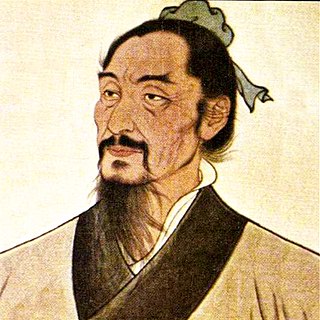 W
WMozi, original name Mo Di, was a Chinese philosopher who founded the school of Mohism during the Hundred Schools of Thought period. The ancient text Mozi contains material ascribed to him and his followers.
 W
WMichel Onfray is a French writer and philosopher. Having a hedonistic, epicurean and atheist world view, he is a highly prolific author on philosophy, having written over 100 books. His philosophy is mainly influenced by such thinkers as Nietzsche, Epicurus, the Cynic and Cyrenaic schools, as well as French materialism.
 W
WPlato was an Athenian philosopher during the Classical period in Ancient Greece, founder of the Platonist school of thought and the Academy, the first institution of higher learning in the Western world.
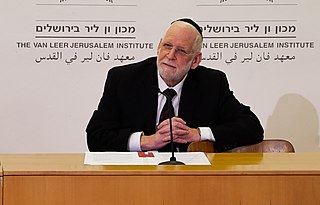 W
WNaftali Rothenberg is an Israeli scholar, rabbi and author. He is known for his studies on the wisdom of love in Jewish Canonical literature and his inclusive leadership in the Israeli rabbinate.
 W
WBertrand Arthur William Russell, 3rd Earl Russell was a British polymath. As an academic, he worked in philosophy, mathematics, and logic. His work has had a considerable influence on mathematics, logic, set theory, linguistics, artificial intelligence, cognitive science, computer science, and various areas of analytic philosophy, especially philosophy of mathematics, philosophy of language, epistemology and metaphysics. He was a public intellectual, historian, social critic, political activist, and Nobel laureate. He was born in Monmouthshire into one of the most prominent aristocratic families in the United Kingdom.
 W
WMax Ferdinand Scheler was a German philosopher known for his work in phenomenology, ethics, and philosophical anthropology. Considered in his lifetime one of the most prominent German philosophers, Scheler developed the philosophical method of Edmund Husserl, the founder of phenomenology. Given that school's utopian ambitions of re-founding all of human knowledge, Scheler was nicknamed the "Adam of the philosophical paradise" by José Ortega y Gasset. After Scheler's death in 1928, Martin Heidegger affirmed, with Ortega y Gasset, that all philosophers of the century were indebted to Scheler and praised him as "the strongest philosophical force in modern Germany, nay, in contemporary Europe and in contemporary philosophy as such." Scheler was an important influence on the theology of Pope John Paul II, who wrote his 1954 doctoral thesis on "An Evaluation of the Possibility of Constructing a Christian Ethics on the Basis of the System of Max Scheler", and later wrote many articles on Scheler's philosophy. Thanks to John Paul II as well as to Scheler's influence on his student Edith Stein, Scheler has exercised a notable influence on Catholic thought to this day.
 W
WArthur Schopenhauer was a German philosopher. He is best known for his 1818 work The World as Will and Representation, which characterizes the phenomenal world as the product of a blind noumenal will. Building on the transcendental idealism of Immanuel Kant, Schopenhauer developed an atheistic metaphysical and ethical system that rejected the contemporaneous ideas of German idealism. He was among the first thinkers in Western philosophy to share and affirm significant tenets of Indian philosophy, such as asceticism, denial of the self, and the notion of the world-as-appearance. His work has been described as an exemplary manifestation of philosophical pessimism.
 W
WSocrates was a Greek philosopher from Athens who is credited as a founder of Western philosophy and the first moral philosopher of the ethical tradition of thought. An enigmatic figure, Socrates authored no texts and is known mainly through the posthumous accounts of classical writers, particularly his students Plato and Xenophon. These accounts are written as dialogues, in which Socrates and his interlocutors examine a subject in the style of question and answer; they gave rise to the Socratic dialogue literary genre. Contradictory accounts of Socrates make a reconstruction of the history of his life nearly impossible, a situation known as the Socratic problem. Socrates was a polarizing figure in Athenian society. In 399 BC, he was accused of corrupting the youth and failing to acknowledge the city's official gods. After a trial that lasted a day, he was sentenced to death. He spent his last day in prison, refusing to escape.
 W
WRobert C. Solomon was an American professor of philosophy at the University of Texas at Austin, where he taught for more than 30 years. Professor Solomon won many teaching honors, including the Standard Oil Outstanding Teaching Award in 1973; the University of Texas President's Associates Teaching Award (twice); a Fulbright Lecture Award; University Research and National Endowment for the Humanities Grants; and the Chad Oliver Plan II Teaching Award in 1998.
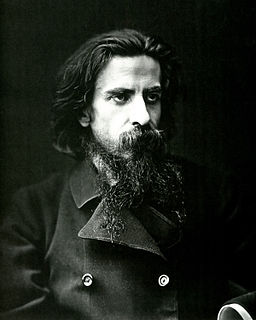 W
WVladimir Sergeyevich Solovyov, a Russian philosopher, theologian, poet, pamphleteer, and literary critic, played a significant role in the development of Russian philosophy and poetry at the end of the 19th century and in the spiritual renaissance of the early-20th century.
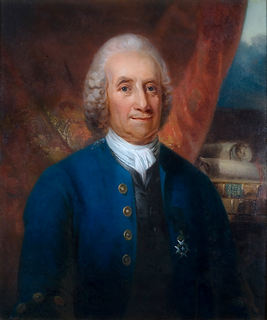 W
WEmanuel Swedenborg was a Swedish pluralistic-Christian theologian, scientist, philosopher and mystic. He became best known for his book on the afterlife, Heaven and Hell (1758).
 W
WThiruvalluvar, commonly known as Valluvar, was a celebrated Tamil poet and philosopher. He is best known as the author of the Tirukkuṟaḷ, a collection of couplets on ethics, political and economical matters, and love. The text is considered an exceptional and widely cherished work of the Tamil literature.
 W
WHenry David Thoreau was an American naturalist, essayist, poet, and philosopher. A leading transcendentalist, he is best known for his book Walden, a reflection upon simple living in natural surroundings, and his essay "Civil Disobedience", an argument for disobedience to an unjust state.
 W
WPaul Johannes Tillich was a German-American Christian existentialist philosopher and Lutheran Protestant theologian who is widely regarded as one of the most influential theologians of the twentieth century. Tillich taught at a number of universities in Germany before immigrating to the United States in 1933, where he taught at Union Theological Seminary, Harvard Divinity School, and the University of Chicago.
 W
WKurt Vonnegut Jr. was an American writer. In a career spanning over 50 years, he published 14 novels, three short story collections, five plays, and five nonfiction works, with further collections being published after his death.
 W
WMonique Wittig was a French author, philosopher and feminist theorist who wrote about overcoming socially enforced gender roles and who coined the phrase "heterosexual contract". She published her first novel, L'Opoponax, in 1964. Her second novel, Les Guérillères (1969), was a landmark in lesbian feminism.
 W
WYajnavalkya or Yagyavlkya is a Hindu Vedic sage figuring in the Brihadaranyaka Upanishad. Yajnavalkya proposes and debates metaphysical questions about the nature of existence, consciousness and impermanence, and expounds the epistemic doctrine of neti neti to discover the universal Self and Ātman. Texts attributed to him include the Yajnavalkya Smriti, Yoga Yajnavalkya and some texts of the Vedanta school. He is also mentioned in various Brahmanas and Aranyakas.
 W
WZeno of Citium was a Hellenistic philosopher from Citium, Cyprus. Zeno was the founder of the Stoic school of philosophy, which he taught in Athens from about 300 BC. Based on the moral ideas of the Cynics, Stoicism laid great emphasis on goodness and peace of mind gained from living a life of virtue in accordance with nature. It proved very popular, and flourished as one of the major schools of philosophy from the Hellenistic period through to the Roman era, and enjoyed revivals in the Renaissance as Neostoicism and in the current era as Modern Stoicism.